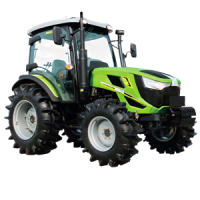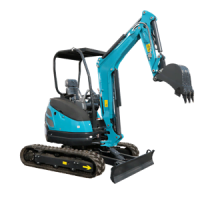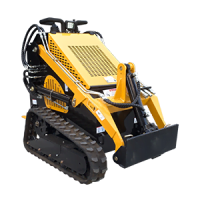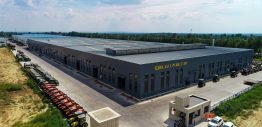In the age of precision agriculture and sustainable farming practices, the integration of digital technology into farm tractors has emerged as a transformative force in modern agriculture. These advancements have revolutionized the way farmers operate, manage their resources, and optimize crop yields. In this comprehensive 8000-word article, we will explore the intricate world of digital technology integration in farm tractors. From the evolution of precision farming to the latest innovations, this guide will provide a deep dive into the complexities and benefits of this technological revolution.
Introduction
The integration of digital technology into farm tractors represents a pivotal moment in the history of agriculture. It not only enhances productivity but also allows farmers to make data-driven decisions, reduce waste, and minimize environmental impact. This article will delve into the following aspects of digital technology integration in farm tractors:
The Evolution of Precision Agriculture
To understand the significance of digital technology integration, we will explore the historical context of precision agriculture. From its early roots to the modern era, we will trace the development of technologies that paved the way for digital integration.
The Role of Sensors and IoT
Sensors and the Internet of Things (IoT) have become essential components of digital technology in tractors. We will discuss how sensors gather real-time data on soil conditions, weather, and equipment performance, enabling precise decision-making.
GPS and Autonomous Tractors
GPS technology has revolutionized tractor navigation, allowing for accurate field mapping, automated guidance, and even autonomous tractor operation. We will delve into the impact of GPS on farming efficiency and labor.
Data Analytics and Farm Management
The data collected by digital technology is a goldmine for farmers. We will explore how data analytics tools are used to analyze this information, optimize resource allocation, and enhance overall farm management.
Remote Monitoring and Control
Farmers can now remotely monitor and control their tractors through mobile apps and web-based platforms. We will discuss the convenience and benefits of remote tractor management.
Precision Planting and Fertilization
Digital technology enables precise planting and fertilization, reducing input costs and environmental impact. We will delve into the mechanics of variable rate technology (VRT) and its impact on crop yield.
Sustainability and Environmental Impact
Sustainable farming practices are at the forefront of agriculture. We will explore how digital technology integration contributes to reduced environmental impact, including reduced chemical use and optimized resource allocation.
Challenges and Adoption Barriers
While digital technology offers immense benefits, it also presents challenges such as data security, infrastructure requirements, and the digital divide. We will examine these challenges and how they affect technology adoption.
FAQ
Q1. How does GPS integration benefit tractor operations?
A1. GPS integration allows for precise tractor navigation, reducing overlap, improving efficiency, and enabling automated guidance and autonomous tractor operation.
Q2. What types of sensors are commonly used in digital technology integration for tractors?
A2. Sensors used in tractors include soil moisture sensors, weather sensors, GPS receivers, and equipment health monitoring sensors.
Q3. How does digital technology contribute to sustainable farming practices?
A3. Digital technology helps reduce chemical use, optimize resource allocation, and minimize environmental impact, aligning farming practices with sustainability goals.
Q4. What are the key challenges in adopting digital technology in agriculture?
A4. Challenges include data security concerns, infrastructure requirements, the digital divide in rural areas, and the cost of implementing technology on a large scale.
Q5. Can older tractors be retrofitted with digital technology?
A5. Yes, older tractors can often be retrofitted with digital technology, including GPS systems and sensor arrays, to enhance their capabilities.
Q6. How can farmers ensure the security of their data when using digital technology on the farm?
A6. Farmers should use secure, reputable software and hardware solutions, implement strong access controls, and regularly update and patch their systems to enhance data security.
Q7. What is the future of digital technology integration in farm tractors?
A7. The future holds exciting possibilities, including enhanced automation, artificial intelligence integration, and even more precise and sustainable farming practices.
In conclusion, digital technology integration in farm tractors has ushered in a new era of precision and efficiency in agriculture. It not only empowers farmers with data-driven insights but also aligns farming practices with sustainability goals. As technology continues to advance, the agriculture industry will witness even more profound transformations, leading to a more sustainable and productive future.







-1.png)